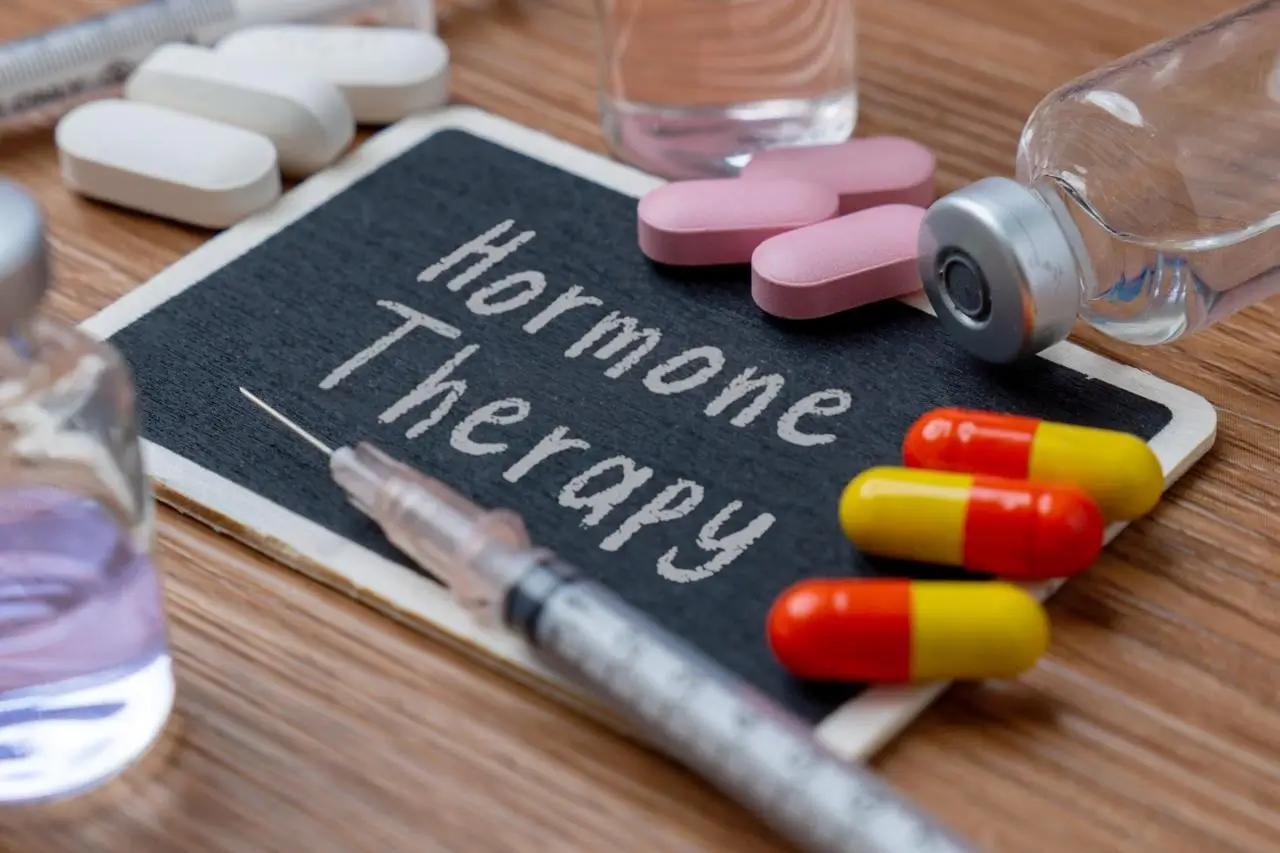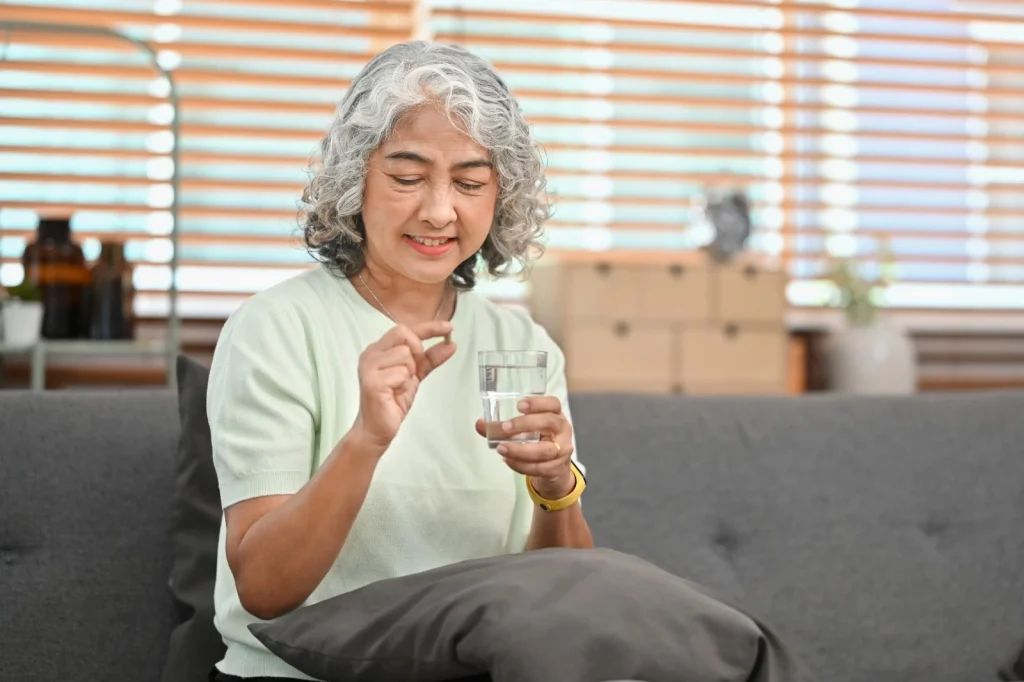

Menopause can feel like an uninvited guest who overstays her welcome — hot flashes arrive without warning, sleep becomes restless, moods swing like a pendulum, and energy levels dip. In the middle of all this, the wellness aisle (and Instagram ads) start tempting you with colorful bottles of “menopause supplements.”
But here’s the question most women quietly ask themselves before buying:
Do menopause supplements really work?
The answer isn’t a simple yes or no. It’s more like — “sometimes, with the right ingredients, for the right person, in the right way.” Let’s break this down gently, with science, compassion, and real-world expectations.
Menopause isn’t a disease. It’s a natural transition — but that doesn’t mean it feels easy. The drop in estrogen and progesterone affects more than just periods. It influences sleep, mood, brain clarity, bone density, skin elasticity, weight, and heart health.
Doctors may recommend HRT (Hormone Replacement Therapy), but it’s not for everyone. Some women can’t take it due to medical conditions, others prefer non-hormonal approaches, and some want an extra layer of support alongside lifestyle changes.
This is where menopause supplements step in. They’re designed to bridge nutrient gaps, support hormone balance, and ease symptoms naturally. But — the key is knowing what works and what’s just marketing hype.
Not all supplements are equal. Some have been studied extensively; others rely on anecdotal claims. Here’s what science currently says about common menopause supplement ingredients:
What they are: Plant compounds that mimic estrogen (but much weaker).
Science says: Some studies show they reduce hot flashes and night sweats, especially soy isoflavones. Red clover has mixed results.
What to expect: They may take a few weeks to months to show effects, and results vary between women.
What it is: A herb long used for menopause symptoms, especially hot flashes.
Science says: Evidence is mixed. Some women report relief, but large reviews show inconsistent results. It’s considered safe short-term, but caution is advised for those with liver issues.
What to expect: May help with hot flashes and mood swings, but not a magic pill.
What it is: An adaptogen — a herb that helps the body manage stress.
Science says: Good evidence for reducing stress, improving sleep, and balancing cortisol. Emerging research also links it to improved sexual wellness and mood in perimenopausal women.
What to expect: Better sleep, calmer moods, and more resilience to stress.
Vitamin D & Calcium: Essential for bone health, especially post-menopause. Deficiency can worsen bone loss.
Vitamin B12: Supports energy, red blood cell production, and brain health. Deficiency is common in midlife and can worsen fatigue.
Magnesium: Linked with better sleep, relaxation, and reduced anxiety.
Zinc: Supports immune function and hormonal balance.
These aren’t “optional extras.” They’re the basics your body needs to thrive during midlife.
What they are: Herbs that help with energy, stress, and hormonal resilience.
Science says: Promising for fatigue, libido, and mood, but studies in menopause are still small.
What to expect: Energy boost and mood lift, but results vary.
Here’s the compassionate but real answer: menopause supplements do work, but not like magic pills.
They won’t erase all symptoms overnight. Instead, think of them as supportive allies. With consistency (at least 8–12 weeks), they can:
Ease the intensity of hot flashes
Improve sleep and reduce anxiety
Support energy, focus, and resilience
Protect long-term health (bones, heart, metabolism)
But — if you expect supplements to feel like an “on-off switch,” you might be disappointed. They work best as part of a holistic plan: good nutrition, movement, stress management, and sleep hygiene.
Not all menopause supplements are created equal. Many products underdose ingredients, use fillers, or lack clinical research. When choosing one, look for:
✔ Clinically studied doses
✔ Transparent labelling (no “proprietary blends” hiding ingredient amounts)
✔ Third-party testing for purity and safety
✔ A formula that covers multiple symptoms, not just one
This is where thoughtful formulations make a difference. Miror Thrive was created with the idea that women shouldn’t have to juggle multiple bottles or guess what works.
It brings together:
Black Cohosh for hot flashes
Ashwagandha for stress and sleep
Vitamin D, Magnesium, and B Vitamins for bone, mood, and energy
Omega-3s and plant-based antioxidants for heart and overall vitality
What makes it unique is the synergy — each ingredient is backed by science, but also carefully combined to support women through every stage of menopause. Many women in the Miror Community describe it as feeling like they’ve regained balance — not just relief from symptoms, but a sense of thriving again.
Yes — when chosen wisely, menopause supplements can absolutely make a difference. They’re not a “cure” for menopause, but they can help you feel like yourself again — steadier, stronger, and more supported through this transition.
The key is managing expectations: they work gradually, require consistency, and should be part of a bigger self-care toolkit.
Think of them as companions on your journey — not quick fixes, but allies that help you navigate menopause with more ease and grace.
Most women notice changes within 8–12 weeks of consistent use.
Supplements are generally considered gentler, but they’re not a replacement for medical treatment. HRT may be necessary for severe symptoms. Always consult your doctor.
It depends on the specific supplements and medications. It’s best to get a doctor’s clearance.
Miror Thrive is designed for perimenopausal and menopausal women, but consult your doctor if you have existing medical conditions.
Every woman’s body is different. Some may respond better to certain ingredients than others. You may need to try different approaches or combine supplements with lifestyle changes.



 ×
×

